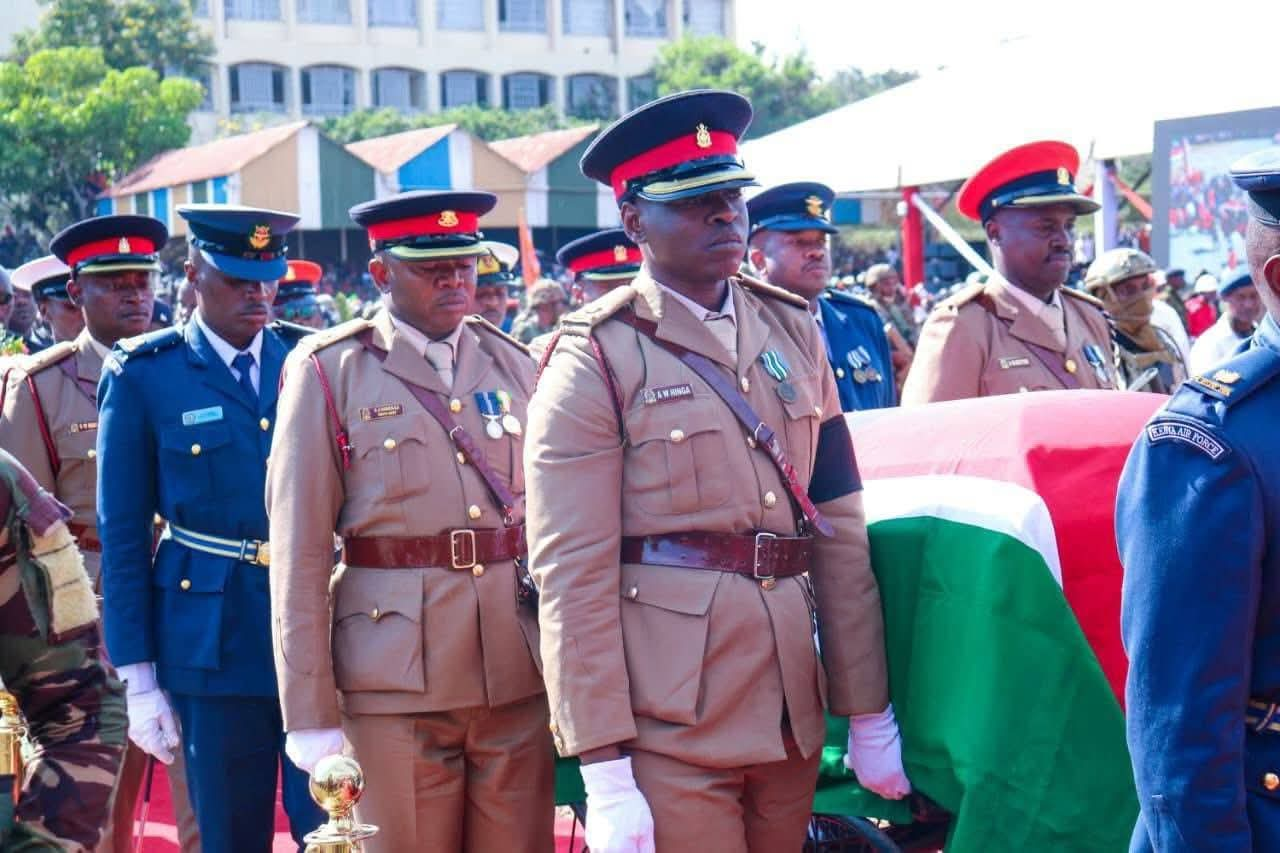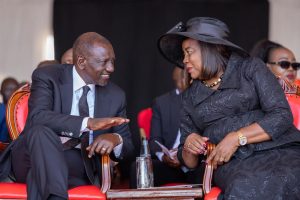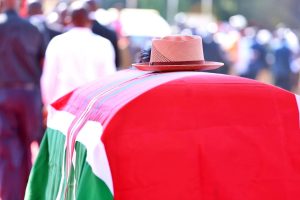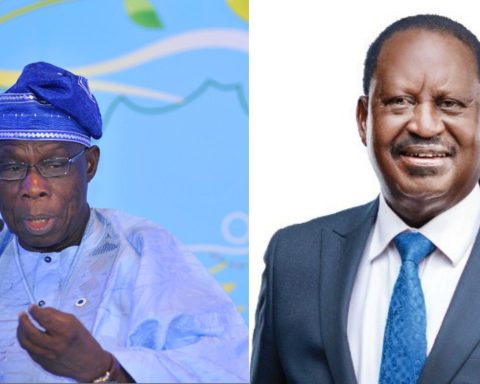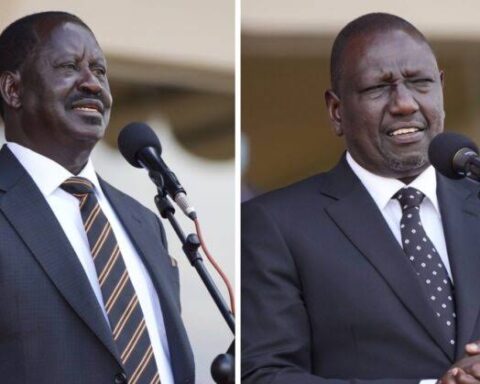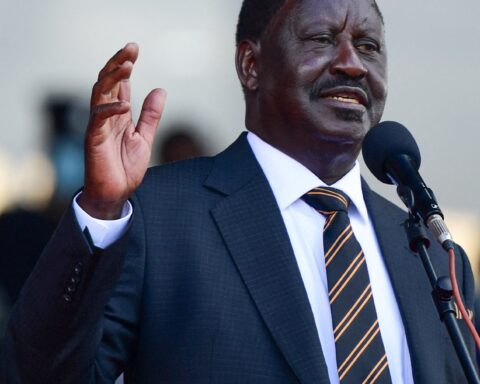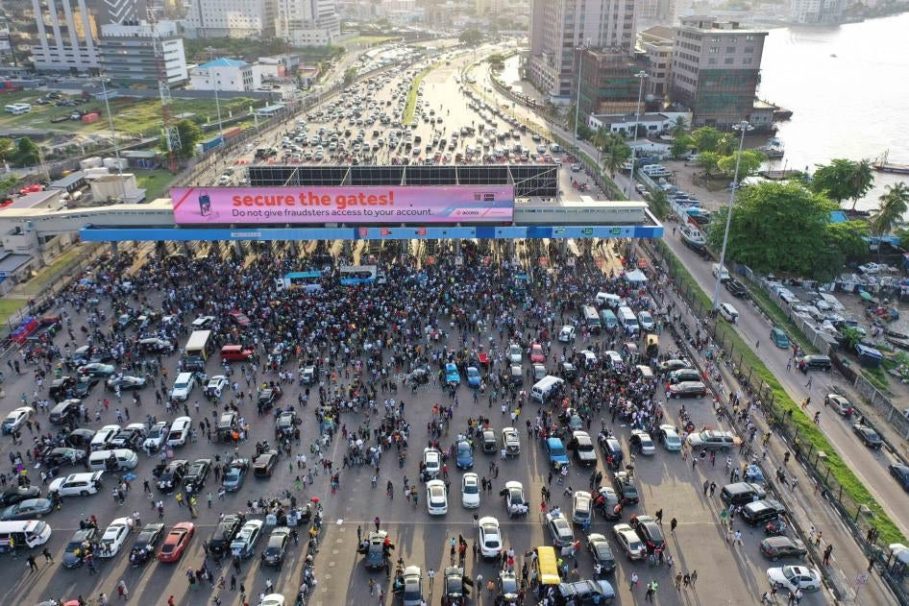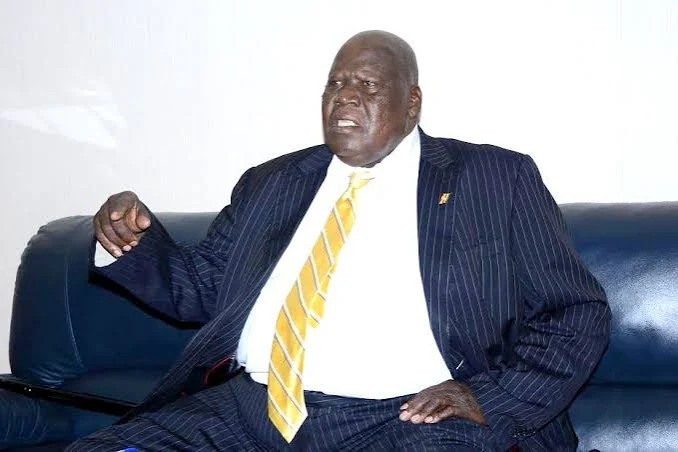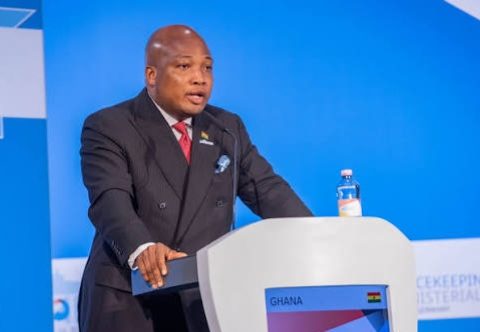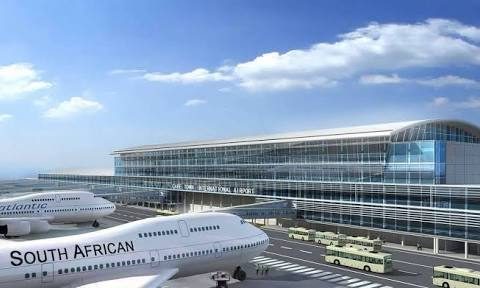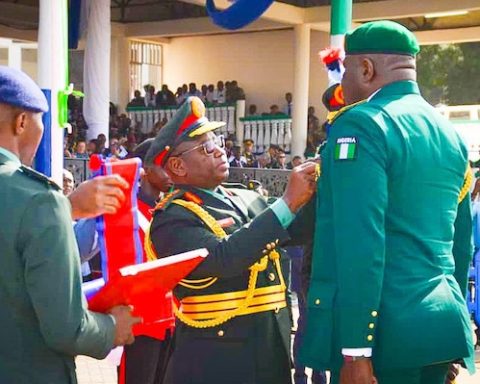Kenya has laid to rest former Prime Minister Raila Amolo Odinga, following a state funeral held on Sunday, October 19, at his family homestead in Bondo, Siaya County.
The ceremony marked the final farewell to one of Africa’s most enduring opposition leaders and champions of democracy, who died in India on October 15 at the age of 80.
President William Ruto led national and international dignitaries at the funeral, which drew tens of thousands of mourners and featured full military honours, including a 17-gun salute. Earlier, Ruto had declared a seven-day national mourning period, directing flags to fly at half-mast across the country in honour of the late statesman.
Join our WhatsApp ChannelIn an emotional tribute, President Ruto described Odinga as “a fearless patriot and visionary whose belief in democracy and justice transcended politics and personal ambition.”
Former President Uhuru Kenyatta, with whom Odinga shared both rivalry and reconciliation, eulogised him as “a man who placed Kenya above self and stood for unity even in the face of adversity.”
The funeral service, held at the grounds of Jaramogi Oginga Odinga University of Science and Technology, was officiated by Anglican clergy. Mourners sang liberation songs that echoed Odinga’s decades-long fight for multiparty democracy and social justice. He was interred beside his father, Jaramogi Oginga Odinga, Kenya’s first vice president and a leading independence figure.
Odinga had travelled to India on October 10 for medical treatment in Kerala. He reportedly suffered a cardiac arrest at an Ayurvedic hospital in Ernakulam district, where he was receiving care. His remains were flown back to Kenya on October 16, prompting massive crowds to gather at Jomo Kenyatta International Airport to receive the body, leading to security challenges as mourners breached airport barriers.
READ ALSO: Kenya’s Tireless Champion of Democracy, Raila Odinga, Passes Away at 80
Tragic Loss: Kenyan Woman’s Sudden Death on US-Bound KLM Flight Leaves Loved Ones in Shock
Prime Business Africa reports that the days leading up to the burial were marked by scenes of grief and tension. At least five people were reported dead and several injured in stampedes and clashes during public viewings in Nairobi and Kisumu. On October 16, police opened fire on mourners at a viewing event in Nairobi, leaving two dead, according to the Associated Press.
Tributes have continued to pour in from across Africa and beyond. African Union Chairperson Moussa Faki Mahamat hailed Odinga’s “unwavering dedication to democratic governance and reform.” South African President Cyril Ramaphosa described him as “a true Pan-Africanist whose courage inspired generations across the continent.”
U.S. Secretary of State Antony Blinken also paid tribute, noting that Odinga “devoted his life to building accountable institutions and defending the rights of ordinary citizens.”
Raila Odinga served as Kenya’s first Prime Minister from 2008 to 2013 under a power-sharing deal that ended post-election violence. He was a key architect of the 2010 Constitution and contested the presidency five times, emerging as a dominant figure in the country’s post-independence political history.
Though he never attained the presidency, Odinga’s influence in shaping Kenya’s democratic evolution remains unmatched. His passing has reignited debate about the future of the Orange Democratic Movement (ODM) and the country’s political direction.
Odinga is survived by his wife, Ida Odinga, and their children.
“Raila’s legacy is eternal,” President Ruto said at the funeral. “He reminded us that true leadership is measured not by power, but by service to the people.”
Amanze Chinonye is a Staff Correspondent at Prime Business Africa, a rising star in the literary world, weaving captivating stories that transport readers to the vibrant landscapes of Nigeria and the rest of Africa. With a unique voice that blends with the newspaper's tradition and style, Chinonye's writing is a masterful exploration of the human condition, delving into themes of identity, culture, and social justice. Through her words, Chinonye paints vivid portraits of everyday African life, from the bustling markets of Nigeria's Lagos to the quiet villages of South Africa's countryside . With a keen eye for detail and a deep understanding of the complexities of Nigerian society, Chinonye's writing is both a testament to the country's rich cultural heritage and a powerful call to action for a brighter future. As a writer, Chinonye is a true storyteller, using her dexterity to educate, inspire, and uplift readers around the world.
- Amanze Chinonye
- Amanze Chinonye
- Amanze Chinonye
- Amanze Chinonye
- Amanze Chinonye
- Amanze Chinonye
- Amanze Chinonye
- Amanze Chinonye
- Amanze Chinonye
- Amanze Chinonye
- Amanze Chinonye
- Amanze Chinonye
- Amanze Chinonye
- Amanze Chinonye
- Amanze Chinonye
- Amanze Chinonye
- Amanze Chinonye
- Amanze Chinonye
- Amanze Chinonye
- Amanze Chinonye
- Amanze Chinonye
- Amanze Chinonye
- Amanze Chinonye
- Amanze Chinonye
- Amanze Chinonye
- Amanze Chinonye
- Amanze Chinonye
- Amanze Chinonye
- Amanze Chinonye
- Amanze Chinonye
- Amanze Chinonye
- Amanze Chinonye
- Amanze Chinonye
- Amanze Chinonye
- Amanze Chinonye
- Amanze Chinonye
- Amanze Chinonye
- Amanze Chinonye
- Amanze Chinonye
- Amanze Chinonye
- Amanze Chinonye
- Amanze Chinonye
- Amanze Chinonye
- Amanze Chinonye
- Amanze Chinonye
- Amanze Chinonye
- Amanze Chinonye
- Amanze Chinonye
- Amanze Chinonye
- Amanze Chinonye
- Amanze Chinonye
- Amanze Chinonye
- Amanze Chinonye
- Amanze Chinonye
- Amanze Chinonye
- Amanze Chinonye
- Amanze Chinonye
- Amanze Chinonye
- Amanze Chinonye
- Amanze Chinonye
- Amanze Chinonye
- Amanze Chinonye
- Amanze Chinonye
- Amanze Chinonye
- Amanze Chinonye
- Amanze Chinonye
- Amanze Chinonye
- Amanze Chinonye
- Amanze Chinonye
- Amanze Chinonye
- Amanze Chinonye
- Amanze Chinonye
- Amanze Chinonye
- Amanze Chinonye
- Amanze Chinonye
- Amanze Chinonye
- Amanze Chinonye
- Amanze Chinonye
- Amanze Chinonye
- Amanze Chinonye
- Amanze Chinonye
- Amanze Chinonye
- Amanze Chinonye
- Amanze Chinonye
- Amanze Chinonye
- Amanze Chinonye
- Amanze Chinonye
- Amanze Chinonye
- Amanze Chinonye
- Amanze Chinonye
- Amanze Chinonye
- Amanze Chinonye
- Amanze Chinonye
- Amanze Chinonye
- Amanze Chinonye
- Amanze Chinonye
- Amanze Chinonye
- Amanze Chinonye
- Amanze Chinonye
- Amanze Chinonye
- Amanze Chinonye
- Amanze Chinonye
- Amanze Chinonye
- Amanze Chinonye
- Amanze Chinonye
- Amanze Chinonye
- Amanze Chinonye
- Amanze Chinonye
- Amanze Chinonye
- Amanze Chinonye
- Amanze Chinonye
- Amanze Chinonye
- Amanze Chinonye
- Amanze Chinonye
- Amanze Chinonye
- Amanze Chinonye
- Amanze Chinonye
- Amanze Chinonye
- Amanze Chinonye
- Amanze Chinonye
- Amanze Chinonye
- Amanze Chinonye
- Amanze Chinonye
- Amanze Chinonye
- Amanze Chinonye
- Amanze Chinonye
- Amanze Chinonye
- Amanze Chinonye
- Amanze Chinonye
- Amanze Chinonye
- Amanze Chinonye
- Amanze Chinonye
- Amanze Chinonye
- Amanze Chinonye
- Amanze Chinonye
- Amanze Chinonye
- Amanze Chinonye
- Amanze Chinonye
- Amanze Chinonye
- Amanze Chinonye


